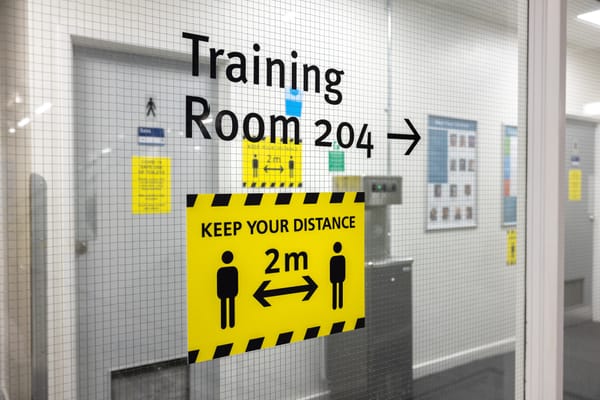Labour must lead a positive debate on immigration
Giacomo Boscaini-Gilroy implores the Labour Party to change public perception of immigration

Imperial’s success depends on a culture of open-mindedness that has attracted academics and students to come from abroad, and means people from different cultures, but with similar interests, can exchange ideas. Immigration has allowed this university to thrive, so why is it that in Britain today it is so universally considered a burden on our society?
The Labour Party is best placed to drive the conversation on immigration to being a positive one. The Conservatives are only doing the opposite, with home secretary Amber Rudd talking about shaming companies that employ too many foreign workers. However, Labour has tended to be silent on this in recent years because their support is split between traditional working class communities of the Midlands and the North, and progressively-minded people mainly from Southern cities that Vote Leave branded the ‘metropolitan elite’. One veered overwhelmingly for Brexit and the other is strongly pro-Europe, so on the topic of immigration, the two cannot be reconciled. The solution has always been to avoid speaking about it loudly, for fear of offending one of the two sides.
As a result, it has been difficult to understand what the Labour Party’s stance is. Shadow Brexit minister Keir Starmer called for immigration to be ‘reduced’, but in Jeremy Corbyn’s Labour conference speech, he started delivering the right message. He spoke out against the demonisation of migrants. He decried the lack of investment in public services and housing that has seen immigrants become the school-place-takers and council-house-stealers. We need to hear people advocating the benefits that we experience as Imperial students. We need to be shown specific policies like a high minimum wage or a robust tax credits system that can make up for downward pressure on wages.
The beginnings are there, but as we have seen before, the party lacks unity and a single voice. Corbyn’s words have not yet filtered through to the bulk of the electorate, who need to be convinced that immigration can be made to work. In the past, by shoving immigration under the carpet, Labour left a space pounced on by UKIP, who made their own views very clear and perpetuated xenophobia. Many Labour voters’ questions about declining public services and purchasing power have been answered by right-wing populism.
Immigration has allowed this university to thrive, so why is it that in Britain today it is so universally considered a burden on our society?
A debate without vitriol might push us to associate foreign faces and accents with hard-working labourers and highly-skilled intellectuals who want to come to our country because it is brimming with opportunity. That is how we build a cohesive society. It should not all be down to Labour, but in 2013, as home secretary, Theresa May introduced a divisive billboard campaign telling illegal immigrants to go home. I do not think the party of power has understood that threats and marginalisation are the last thing we need.
As a result, it has been difficult to understand what the Labour Party’s stance is. Shadow Brexit minister Keir Starmer called for immigration to be ‘reduced’, but in Jeremy Corbyn’s Labour conference speech, he started delivering the right message. He spoke out against the demonisation of migrants. He decried the lack of investment in public services and housing that has seen immigrants become the school-place-takers and council-house-stealers. We need to hear people advocating the benefits that we experience as Imperial students. We need to be shown specific policies like a high minimum wage or a robust tax credits system that can make up for downward pressure on wages.
The beginnings are there, but as we have seen before, the party lacks unity and a single voice. Corbyn’s words have not yet filtered through to the bulk of the electorate, who need to be convinced that immigration can be made to work. In the past, by shoving immigration under the carpet, Labour left a space pounced on by UKIP, who made their own views very clear and perpetuated xenophobia. Many Labour voters’ questions about declining public services and purchasing power have been answered by right-wing populism.
A debate without vitriol might push us to associate foreign faces and accents with hard-working labourers and highly-skilled intellectuals who want to come to our country because it is brimming with opportunity. That is how we build a cohesive society. It should not all be down to Labour, but in 2013, as home secretary, Theresa May introduced a divisive billboard campaign telling illegal immigrants to go home. I do not think the party of power has understood that threats and marginalisation are the last thing we need.
We need to hear people advocating the benefits that we experience as Imperial students
The beginnings are there, but as we have seen before, the party lacks unity and a single voice. Corbyn’s words have not yet filtered through to the bulk of the electorate, who need to be convinced that immigration can be made to work. In the past, by shoving immigration under the carpet, Labour left a space pounced on by UKIP, who made their own views very clear and perpetuated xenophobia. Many Labour voters’ questions about declining public services and purchasing power have been answered by right-wing populism.
A debate without vitriol might push us to associate foreign faces and accents with hard-working labourers and highly-skilled intellectuals who want to come to our country because it is brimming with opportunity. That is how we build a cohesive society. It should not all be down to Labour, but in 2013, as home secretary, Theresa May introduced a divisive billboard campaign telling illegal immigrants to go home. I do not think the party of power has understood that threats and marginalisation are the last thing we need.








